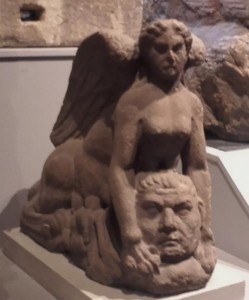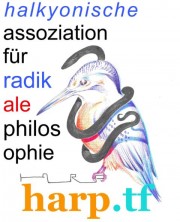
Israel – a white state? Picture from soldats of the Golani Brigade, one of IDF’s most famous combat units. Source: https://www.flickr.com/photos/idfonline/4304073982/
A response to Kristin Flade: Unexceptionally Lovely Days
This “response” originates from my work for the open editorial board of a small independent German-Austrian philosophy and art magazine, engagée. I’ve written it for that magazine because I thought that a most controversial text like Flade’s Unexceptionally Lovely Days shouldn’t be published without fundamental changes. After her changes – which are documented partly in this article – turned out to be only superficial, I insisted to write a comment which should be published after her story. Because Flade on her part was not happy about the polemical tone of my text, she decided to withdraw hers – which made mine obsolete. I’ve decided to publish it here nevertheless: Firstly, because otherwise all the work put in this essay not just by myself but also by my proof-readers, Alex Colligs and Adrian Paukstat (who are not responsible in any way for its content – Adrian told me that he disagrees with it in most parts!), whom I’d like to thank here for their great work, would have been wasted; secondly, because I think that despite its weaknesses Flade’s text is an exemplary case for what I perceive as a highly problematic tendency within the context of “engaged” art these days. “Art” becomes an excuse for spreading bad ideas – and bad ideas become the excuse for producing bad, uninteresting art.
For two reasons it feels strange to write this response. Firstly, I have to admit from the beginning that I am not an expert on its topic. As a philosopher I am quite used, one could say: even trained, to write and talk about topics in which I am not an expert. Some topics, however, are just too serious, too tragic in a way, to become the objects of philosophical spiel, which is always comical in one way or the other. Both the cruel conflict in the small region between Mediterranean and Jordan which some call “Israel”, some call “Palestine” and the so called refugee crisis are such topics without any doubt. The philosopher should remain silent about them – the public, politically engaged intellectual, however, should talk about them.
Secondly, I am not sure how a prosaic, more or less “theoretical” text can “respond” to a piece of literature. I was thinking about writing a literary text myself – maybe it would have been a short story from the point of view of the blonde, chubby soldier1)After my criticism Flade deleted the adjective “blonde”. It is used, however, in the original version of the text which has been published three times on the internet (cf. http://thewildword.com/unexceptionally-lovely-days/, http://www.applied-theatre.org/blog/unexceptionally-lovely-days, http://recording-ghosts.blogspot.de/2015/06/unexceptionally-lovely-days.html; checked on 10|05|2016). who appears in the text only as the representative of a certain “principle” not as a real person with an individual history and individual thoughts and feelings. However, even if I had the talent to write it, it would contradict my own understanding of literature to write in this way, i. e. to write in order to support or to neglect a certain political or philosophical position. Albeit I am not a strong supporter of a strict ideology of “l’art pour l’art”, I am of the opinion, that truly interesting, truly relevant works do not exist in order to support a certain ideological point of view but to undermine it and to show more than one perspective on a given object. They should be multi-perspectival in essence. And they should avoid simply supporting given perspectives but try to formulate radically new ones.
From this point of view I would claim that any piece of art is somehow “bad” or at least not interesting that can be summarised in a simple “message”, which is without any formal contradictions or ambiguities. In such works of art, the artistic form seems to serve as a mere front in order to attract the spectators’ attention to support a certain ideological cause. They are hardly distinctive from commercials. Interesting art is the opposite of it.
I have to admit that – from this point of view – Kristin Flade’s text is not even interesting piece of literature in my opinion. Therefore, I feel at least a bit justified in responding to it in prosaic form: I am justified as this literary text is in truth a prosaic one. One might even say: It would have even been better if Kristin Flade would not have written a literary text but a simple journalist reportage about her journey. To put it bluntly: The literary form serves her only as an excuse to use inappropriate metaphors and allusions in order to support a certain political cause that would immediately attract attention in a prosaic text.
Obviously, this is not her personal problem. My impression is that nowadays art often serves this purpose. As long it is somehow “artistic” one can say any reactionary, irrational, and incorrect sh* they want. If one criticises it, the answer is always: “Calm down, it’s only art.” But why “only”? Are bad views less dangerous only because they are presented in an artistic not in a prosaic manner? Aren’t they possibly even more dangerous due to the enormous manipulative, alluring potential that art possesses (and mere arguments do not)? No – if works of art are unequivocally of merely ideological nature, their aesthetic form cannot serve as an excuse for anything. They can and also should be critiqued from a political and theoretical point of view, too.
Fußnoten
| ↑1 | After my criticism Flade deleted the adjective “blonde”. It is used, however, in the original version of the text which has been published three times on the internet (cf. http://thewildword.com/unexceptionally-lovely-days/, http://www.applied-theatre.org/blog/unexceptionally-lovely-days, http://recording-ghosts.blogspot.de/2015/06/unexceptionally-lovely-days.html; checked on 10|05|2016). |
|---|


